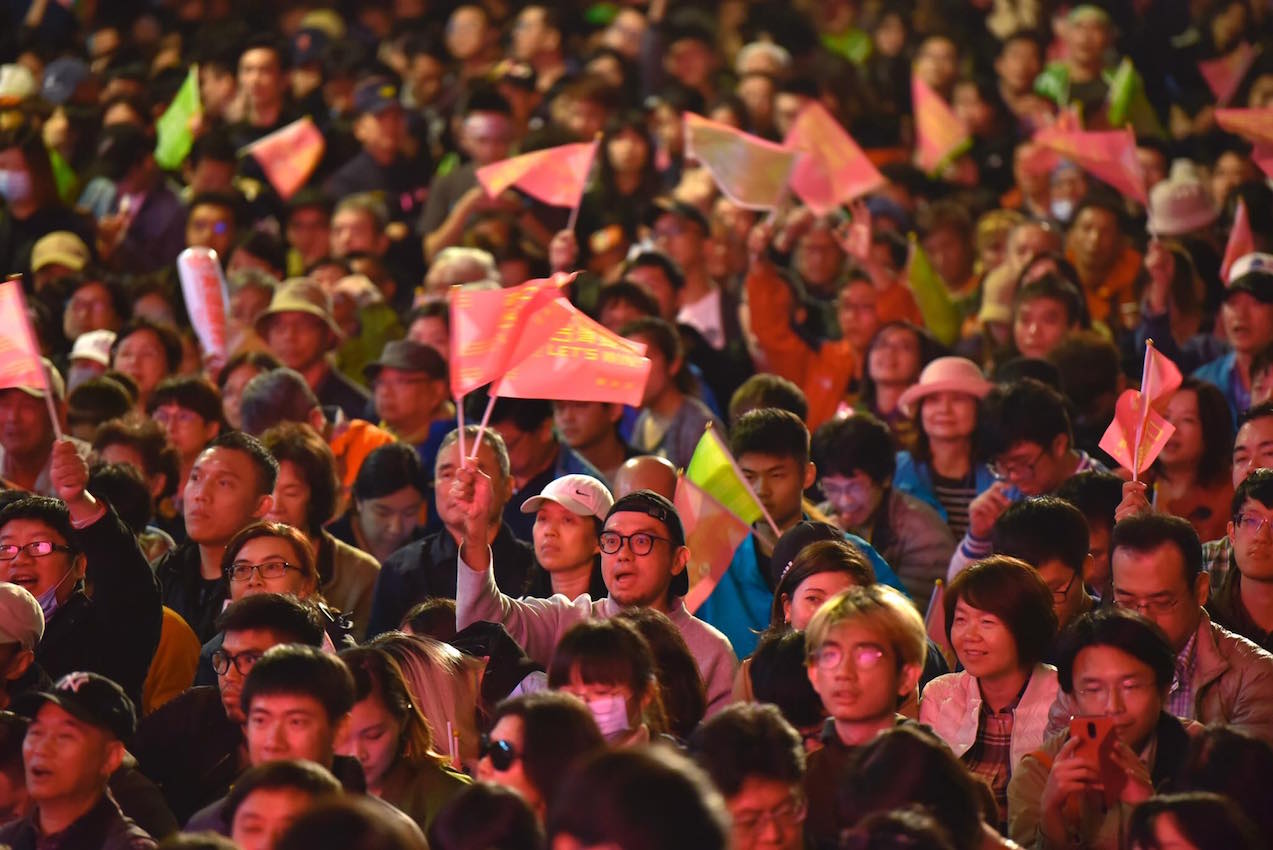by Brian Hioe
語言:
English
Photo Credit: Tsai Ing-wen/Facebook
TSAI ING-WEN of the DPP won reelection by large margins today.
Tsai won over eight million votes, winning 57% of votes, and handily defeating her opponent, Han Kuo-Yu of the KMT. Han won 5.5 million votes, around 38.5% of the vote, while James Soong took around 4% of the vote.
 Photo credit: Tsai Ing-wen/Facebook
Photo credit: Tsai Ing-wen/Facebook
The outcome of the election was clear early on, with Tsai leading Han already by 4:30 PM, thirty minutes after voting stations closed, by which time one percent of votes were counted. Voting took place from 8 AM to 4 PM today. Voting took place quickly, due to the fact that more resources were put into polling stations after last year’s controversy regarding long lines during election polling.
The results of the election confirm polling results which showed Tsai leading Han bu thirty points. However, that Han instructed his supporters to lie to polls as a way of covering his poor polling before the ten day moratorium on conducting election polling made it difficulty to predict ahead of time what the results of the election would be.
The DPP took a total of 61 seats, the KMT 38 seats, the TPP five seats, the NPP three seats, the Taiwan Statebuilding Party (TSP) one seat. The DPP took 33.9% of the party vote, the KMT 33.3%, the TPP 11.2%, the NPP 7.7%, the PFP 3.6%, the TSP 3.1%, the Green Party 2.4%, the New Party 1%, and the Taiwan Action Party Alliance 1%. Only the TPP and NPP passed the five percent threshold to be awarded party list seats.
In particular, third parties outside of the TSP were unable to win any district legislator seats, taking seats only through party votes. It is probable that the results of the election will increase the dependency of small parties on the party list. It was predicted ahead of time that the TPP would cross the five percent threshold, but it was of some surprise that the NPP still crosses the five percent threshold.
The TPP will now be the largest third party in Taiwan. The NPP will likely see some criticisms for the fact that it’s Hsinchu candidate, Gao Yu-ting, divided the vote in a manner that resulted in a KMT victory. The future of the TSP remains, too, to be seen, after yet another election in which the party did not pick up any seats. The TPP, however, will likely be forced to adopt a more coherent stance in its orientation toward the Pan-Green and Pan-Blue camps, now that is has won political seats.
 Photo credit: Tsai Ing-wen/Facebook
Photo credit: Tsai Ing-wen/Facebook
Of the Democracy Frontline grouping of youth candidates, independent Freddy Lim, Chen Bo-wei of the TSP, and Lai Pin-Yu of the DPP won, while independent Hung Tzu-Hung and Enoch Wu of the DPP did not win.
The course of the Tsai administration’s second term remains to be seen, then. Despite holding a clear majority in the Legislative Yuan, in line with the moderate political course that the Tsai administration has taken to date, the Tsai administration is not likely to politically rock the boat, something which also emphasized in Tsai’s victory speech.

